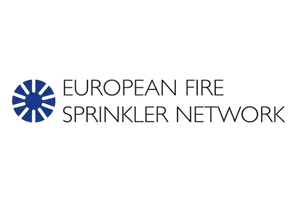The European Fire Sprinkler Network (EFSN) is a coalition established in 2002 focused on promoting fire safety across Europe through the increased use of fire sprinkler systems. It brings together a broad membership from 16 countries, including fire authorities, insurers, fire protection associations, manufacturers, consultants, test laboratories, and national sprinkler organizations. Its primary mission is to reduce European fire-related deaths, injuries, and property losses by promoting the installation and legislative support of properly maintained fire sprinklers. The EFSN is not a trade association but a not-for-profit group serving the public good.
The network operates through multiple channels including technical committees, national country managers (notably in France, Germany, and the Netherlands), and an Executive Director based in the UK. It actively participates in national, European, and international standards bodies relevant to sprinklers and works to educate policymakers and the public about the life-saving benefits of sprinklers, which have been shown to almost eliminate fire deaths in fitted buildings and reduce injuries and property damage by over 80%.
EFSN’s activities include collecting and disseminating accurate data on fire losses and sprinkler effectiveness, dispelling myths about sprinklers, promoting fire sprinkler-friendly legislation across the EU and its member states, supporting training and standards best practice, and fostering national movements in favor of sprinklers to influence EU legislation. Additionally, the network engages with diverse stakeholders such as fire services, insurers, architects, health practitioners, fire victims’ groups, and building code authorities to amplify its impact.
The organization operates under a council and mission statement emphasizing the market development of widely accepted, competently installed, and maintained sprinklers in new and existing buildings. EFSN coordinates promotional and lobbying activities in Brussels to place fire safety higher on the EU agenda and prepare the Commission and Parliament for pro-sprinkler regulatory proposals. Its work is underpinned by a not-for-profit company structure with a budget and membership fees scaled to members’ means.


